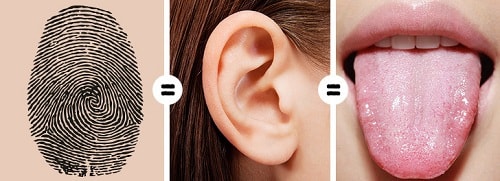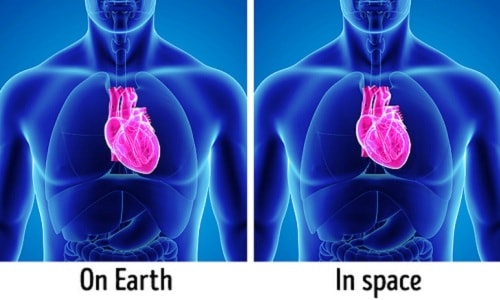Discover 10 facts about the human body
The heart can change shape when people go into space, "tongue prints" are also unique features like fingerprints.
1. In the morning, when we first wake up, our spines are about an inch longer than they are at night. The reason is that the discs that protect the spine are made of a gelatin-like material. As we sit or stand throughout the day, gravity and other forces slightly bend the spine, making us shorter.
2. Not only fingerprints, the shape of your ears is also a unique mark on your body. British scientists have developed a method that can identify people by their ears, with a success rate of up to 99.6%.
The tongue also has a unique shape and texture. Unlike fingerprints, "tongue prints" never change.
|
Photo: Depositphotos |
3. Food temperature has been shown to affect our perception of flavor. Sourness is more pronounced if you eat something piping hot, while bitterness is more pronounced if the food is quite cold. Our receptors are most sensitive to temperatures between 65 and 95 degrees Fahrenheit. So a very hot cup of coffee may seem less bitter than a moderately hot cup.
4. In addition to the four basic tastes (sweet, sour, bitter, and salty), there is a fifth taste called umami (from Japanese). This is the taste found in protein-rich foods, meat and fish broths, and foods containing monosodium glutamate. Everyone has a number of receptors responsible for the perception of umami.
5. Stomach acid is so strong that it can break down razor blades, which means it can damage the stomach itself. Therefore, the stomach regenerates its inner lining every 3-4 days to protect itself. When the destructive effect of the stomach lining overwhelms the protective effect, people are at risk of stomach ulcers.
6. Experts from Flinders University in Australia have concluded that the human body has a "second brain" located in the digestive system. It can also be considered the first brain because it appeared first. This conclusion is based on the fact that the digestive system is the only organ with its own nervous system that can function independently, directly affecting the body. For example, it automates the digestive process.
7. Some people have Auto Brewery Syndrome (ABS), which means they get drunk after eating carbohydrate-rich foods. This is a rare condition in which the yeast Saccharomyces cerevisiae ferments food in the stomach, producing ethanol, a component of beer, wine, and other alcoholic beverages.
8. NASA scientists have discovered that when humans are in space, the heart muscle is lost and the heart changes shape. Specifically, cardiologists studied the hearts of 12 astronauts working on the International Space Station. The images revealed that the heart becomes more spherical in space, and only returns to its normal elongated shape after the astronauts return to Earth.
|
The heart becomes more elongated on Earth (left image) and changes shape when humans go into space. Photo:Depositphotos |
9. The human body glows in the dark but we can't see it. The light the body emits is 1,000 times less sensitive than our naked eyes.
10. In 2010, scientists at Emory University discovered an interesting gene in mice called Homer Simpson. If you delete this gene, the mice may become smarter. In fact, humans also possess the Homer Simpson gene, but no one knows what effect removing it would have.



